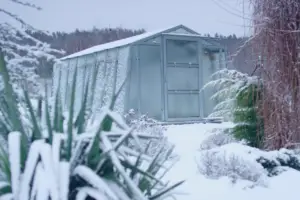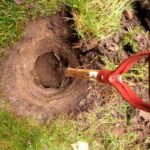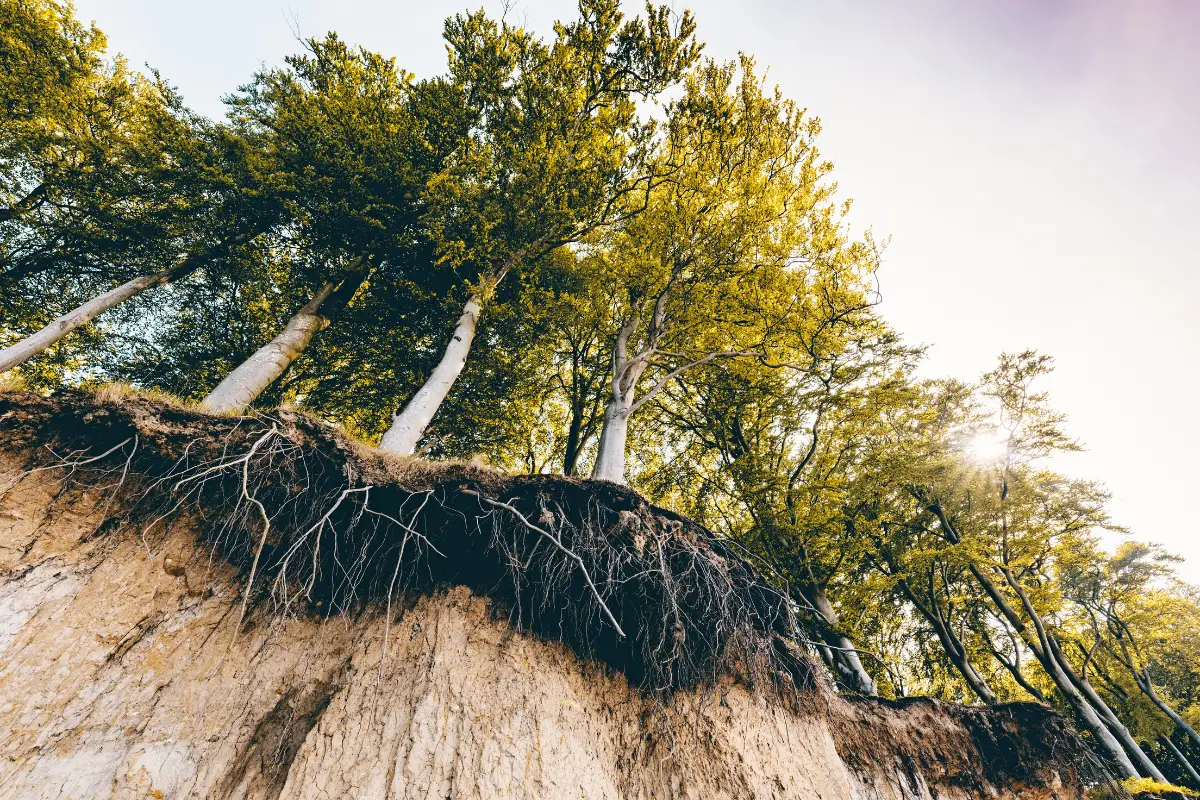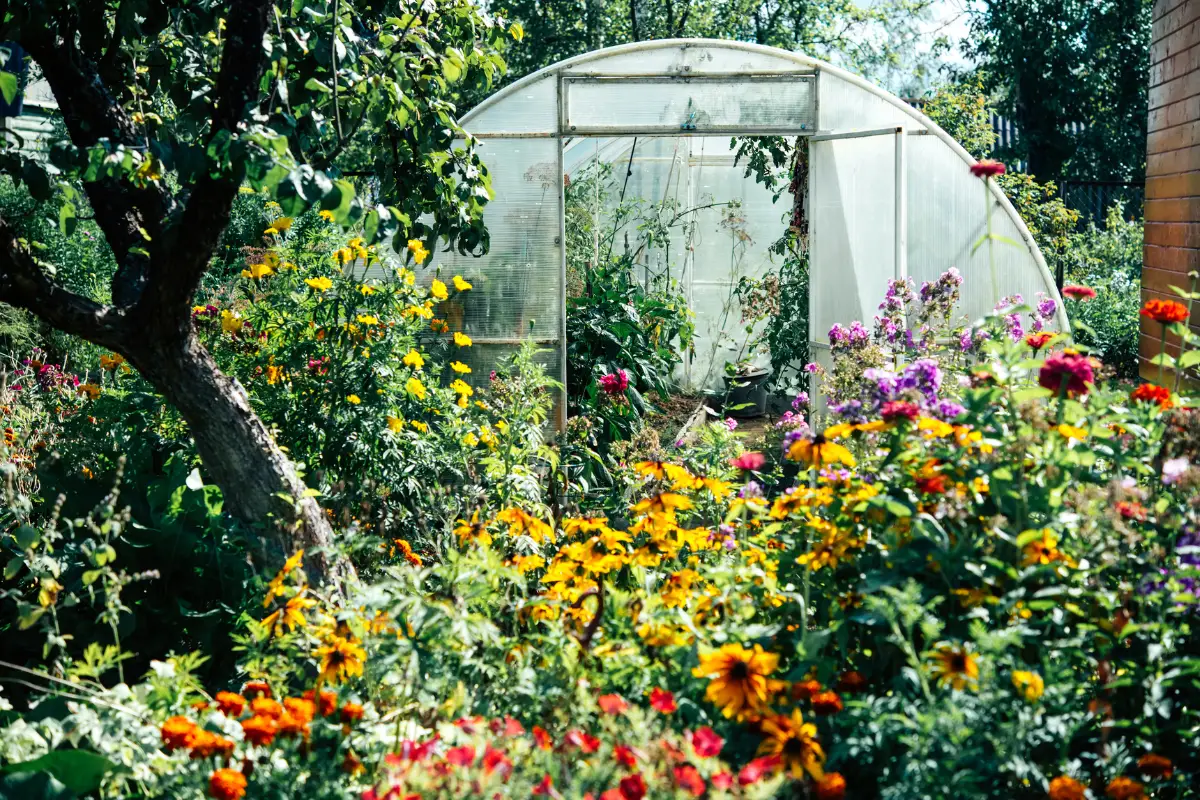When there are bodies of water on your property, like rivers or lakes, there could be gold waiting there. Quartz and lightly colored rocks can indicate the presence of gold. If you suspect there’s gold, you can always pan for it! You also hold the rights to any gold located on your property.
That means you can find gold in your backyard!
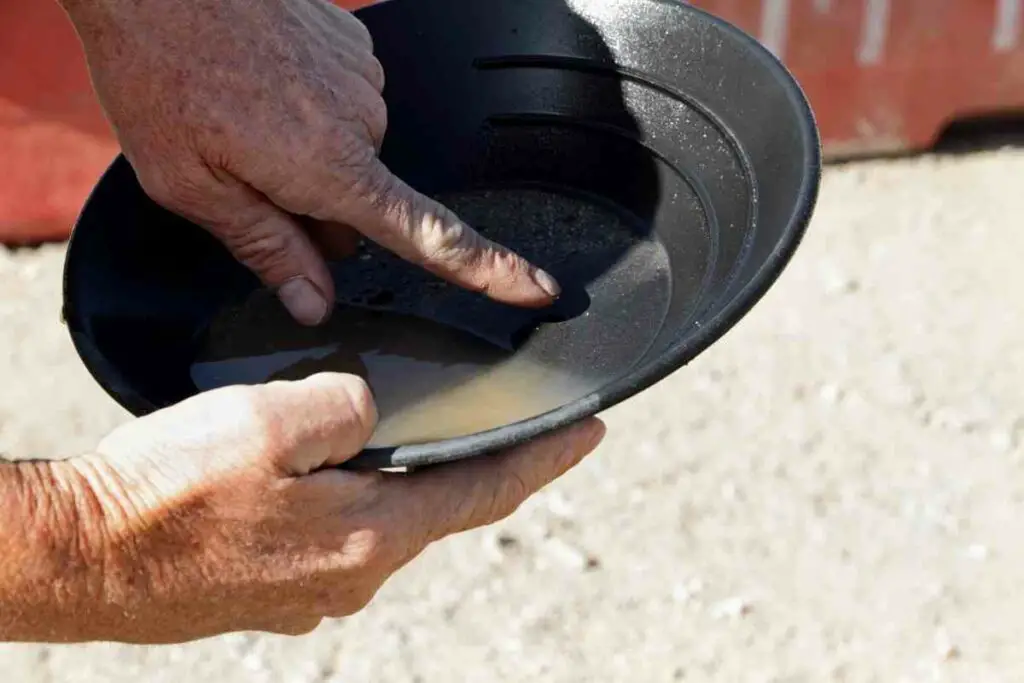
You’ll want to carefully inspect the area and choose where you want to search for it wisely.
Gold is usually near water since currents deposit it in the soil there.
Table of Contents
Can I Find Gold in My Backyard?
It’s not very likely that there’s gold in your yard unless you live somewhere gold is already known.
Even if you don’t find any, you might locate other kinds of minerals.
Gold is very dense and almost always appears in streambeds.
If you’ve already found quartz on your property, it’s much more likely that gold is nearby. You’ll want to first choose a sample area near a water source.
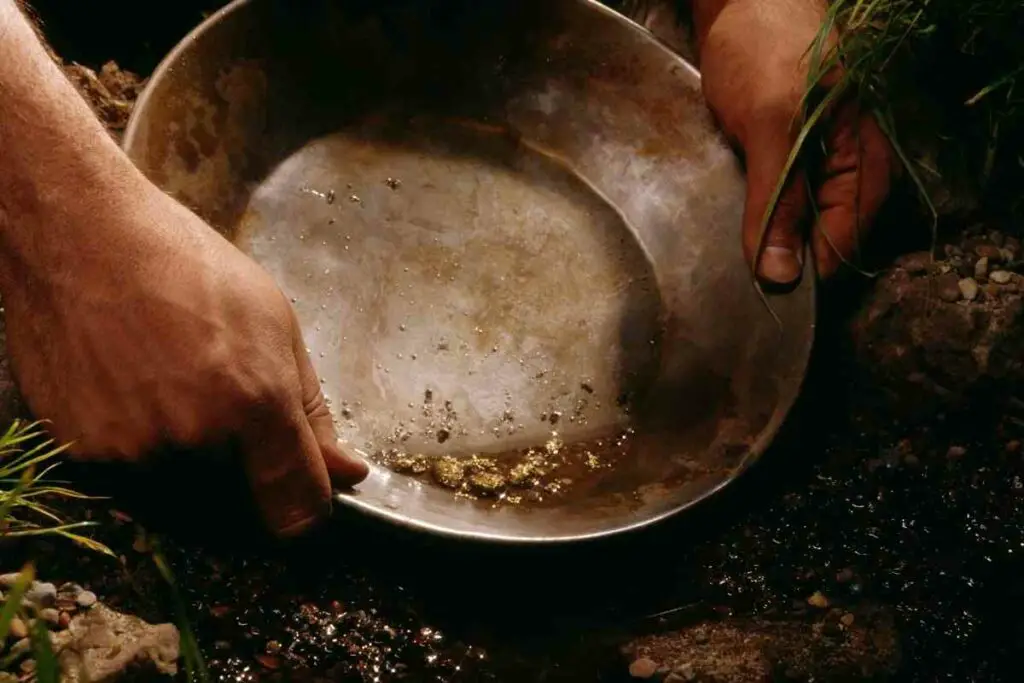
Start by using a trowel to dig up the soil and set it in a pan. Hold the pan under water and gently move it in a circular motion to “pan for gold.”
Everything else, except heavy stones, should float away with the current.
After doing this a few times, you can examine your pan for gold. You can move to another sample area if you don’t see any.
Overall – You can find gold in your backyard! You need a pan and a trowel or small shovel to get started. It doesn’t require money to start, so you don’t have anything to lose except for your time.
What is Panning For Gold?
“Panning for gold” is the easiest method to sort through dirt near bodies of water.
This technique is very old and came into existence during the Gold Rush era.
You don’t need any expensive equipment to pan for gold, and you can easily spot it in the pan, so you don’t need to be an expert either.
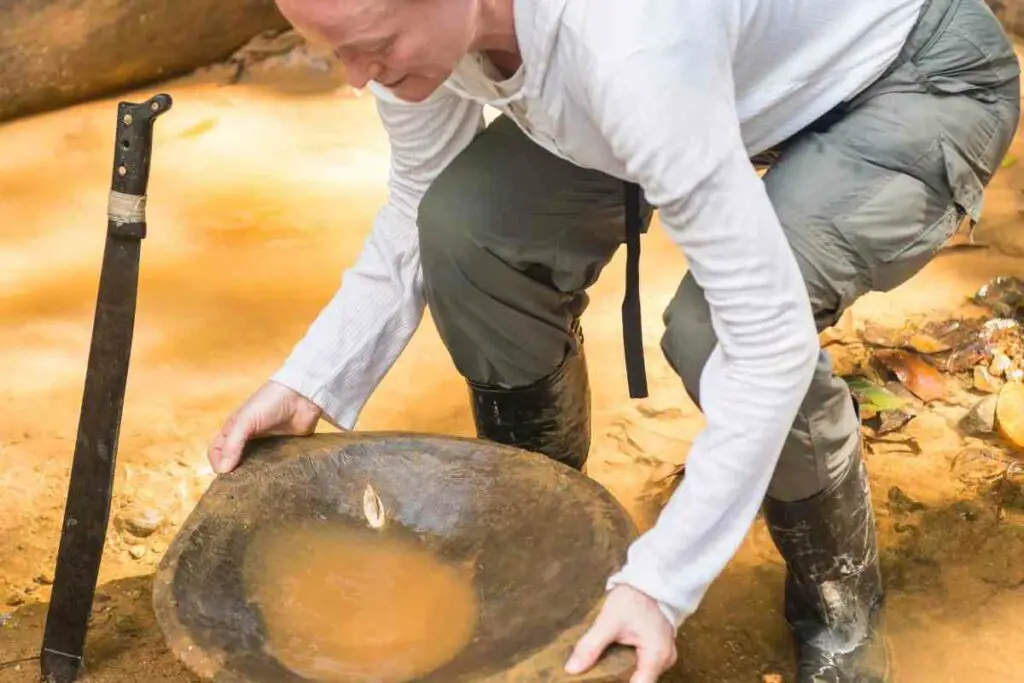
Because of this, panning for gold is something that anyone can do! If you find gold, it’s yours to keep.
Plus, anything on your land also belongs to you.
Where Can I Find Gold?
You can find gold most often in bodies of water.
If you have a creek, stream, or river running through your backyard, those are the best places to pan for gold first.
Once you’ve found water, you’ll want to look for plant growth inside current bends because these areas are likely to catch the gold as it travels downstream.
Here’s another trick you can use! Tie small lead weights to inflated balloons, then connect them to some fishing wire for retrieval. Place the weighted balloons in the water and watch where they go. Where they naturally stop are places that are much more likely to have gold.
Why is that?
Well, these areas are places where the current stops or pauses in the water- making it likely that gold gets stuck there as it travels through the water.
Gold is also very dense, so it doesn’t float. This feature makes panning for gold the best way to find it.
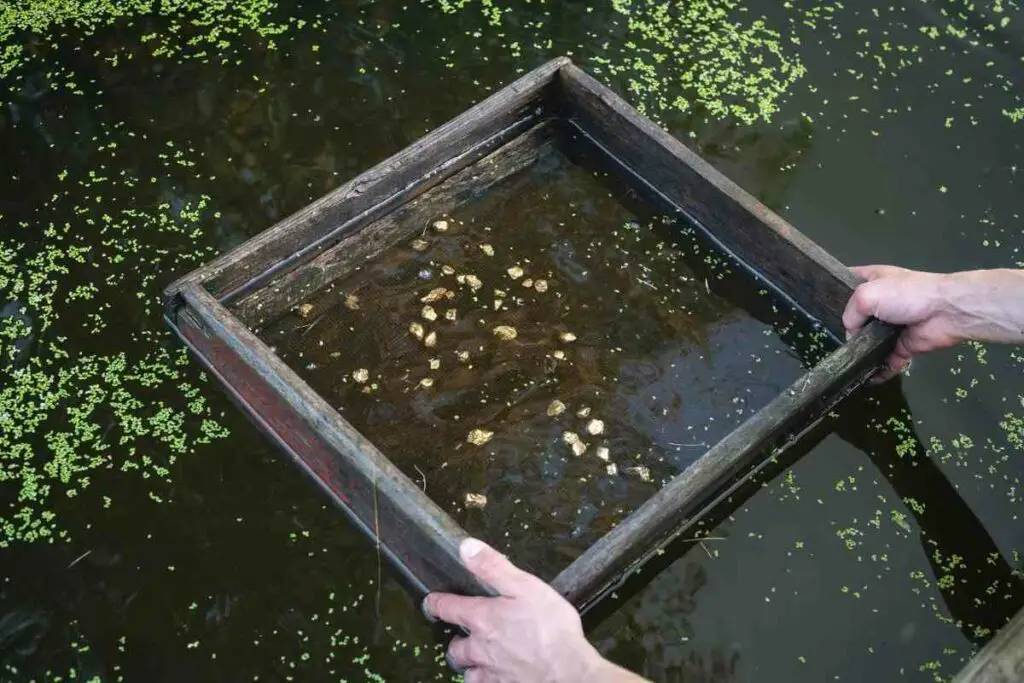
Gold isn’t magnetic, so you can also use a magnet on the bottom of the pan to move lead aside, leaving the gold on its own.
You’ll know you’ve found gold if you see any bright, shimmering yellow nuggets in the pan.
What Happens If I Find Gold in My Yard?
If you happen to find gold on your property, don’t worry.
You may want to seek a lawyer if someone else is trying to mine for gold on your property.
Mineral rights can be very confusing based on where you live, but it’s yours to keep in many cases.
First, conduct a test to ensure that you’ve found real gold. If it turns out to be real, you’ll want to either claim the mineral rights or receive profit from an easement.
That means you sell the rights to the minerals to someone else. While you don’t keep the gold, you’ll make a huge profit.
Even if you don’t have the mineral rights, no one can mine for minerals on your property or force you to move.
If someone else wants the gold, they’d need to deal with you first. You’ll want to get as much out of it as possible.
However, don’t forget that you’ll never have to say yes to anything! You can take your time and think about how you can benefit the most from the gold you’ve found on your property.
How Hard is Gold To Find?
Gold is precious for a reason- it’s very rare.
You’ll have a tough time finding this mineral, and the odds are that it isn’t on your property. However, you can keep panning for it with decent results if you luck out.
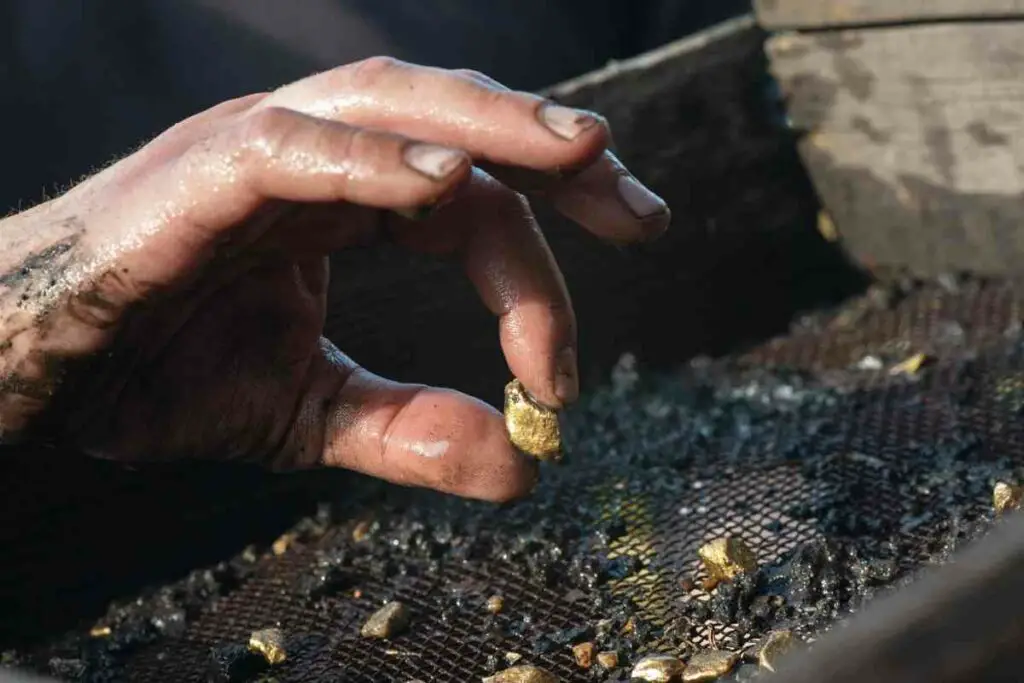
You’ll need to be willing to put in a lot of hard work. Gold is very hard to find, even when the conditions for it to exist are all perfect.
This mineral also has to be natural since it can’t be artificial. We can make many other gems and minerals- but not gold!
That’s why gold is worth so much.
Key Takeaway – Finding gold isn’t easy, and you shouldn’t expect it to be. Although, there’s always the slight chance you will find some of it on your property. Gold can exist in many different locations.
As time goes on, it becomes less likely for people to locate natural gold deposits.
Should I Pan For Gold in My Yard?
If you have a body of water on your property, there’s nothing wrong with checking for gold.
You may find that it’s a fun experience, especially on a warm day.
Kids also enjoy this activity. You can teach them about the Gold Rush and show them how to pan for gold.
You can also discuss minerals and how they become on the earth. Overall, it’s a fun teaching opportunity.
Final Thoughts
It’s not very likely that there’s gold in your yard unless you live somewhere gold is already known.
You’ll have a tough time finding this mineral, and the odds are that it isn’t on your property. However, you can keep panning for it with decent results if you luck out.
You Might Also Read
- Erosion: Causes, Effects, and Prevention
- Unusual Things to Grow in a Greenhouse: Unique and Surprising Options
- What Not to Grow in a Greenhouse: A Guide to Plants That Don’t Thrive in Controlled Environments
- What Can You Grow in a Greenhouse All Year Round: A Guide to Year-Round Greenhouse Gardening
- What to Grow in an Unheated Greenhouse in Winter UK
- How to Heat Your Greenhouse for Free During Winter






